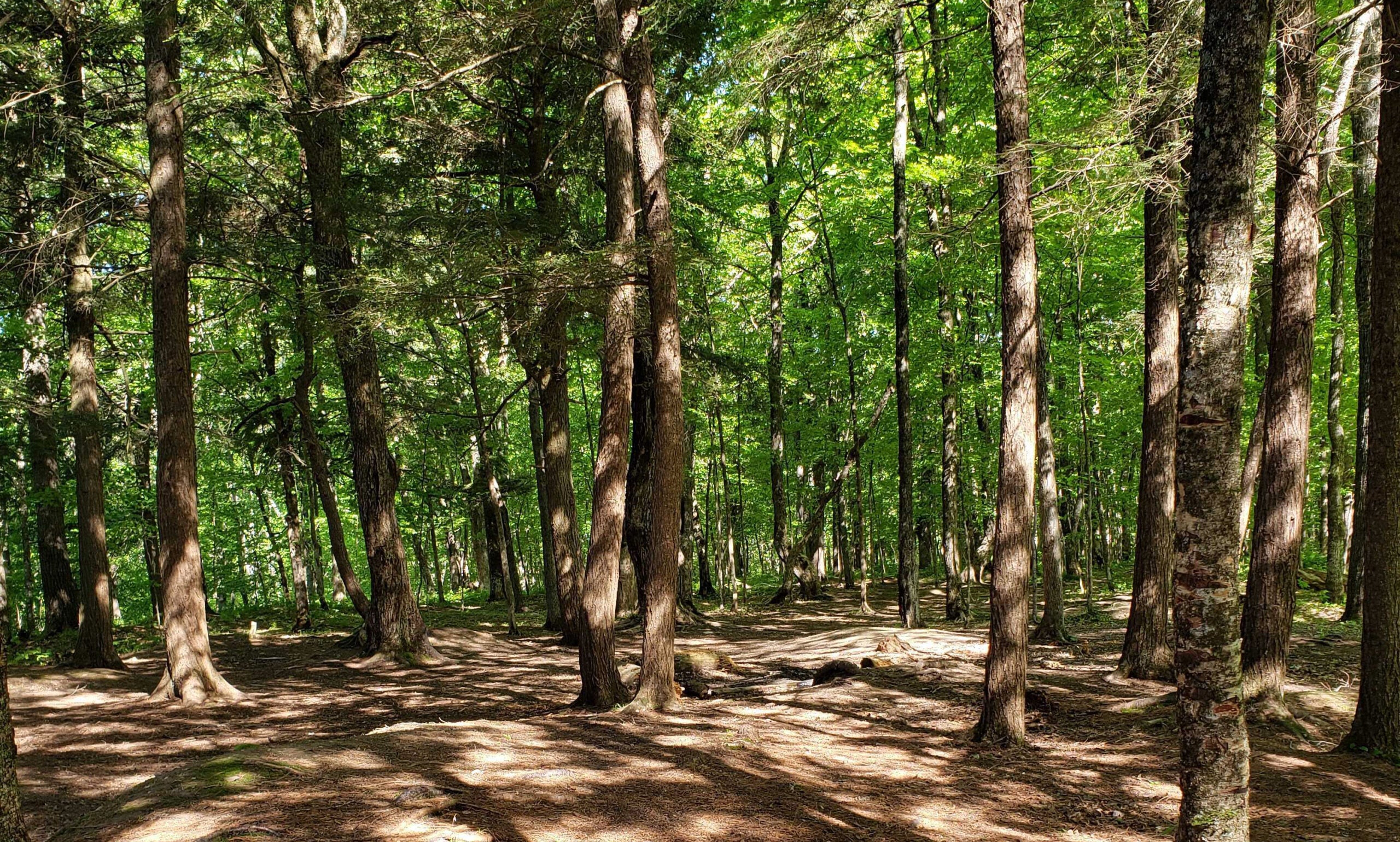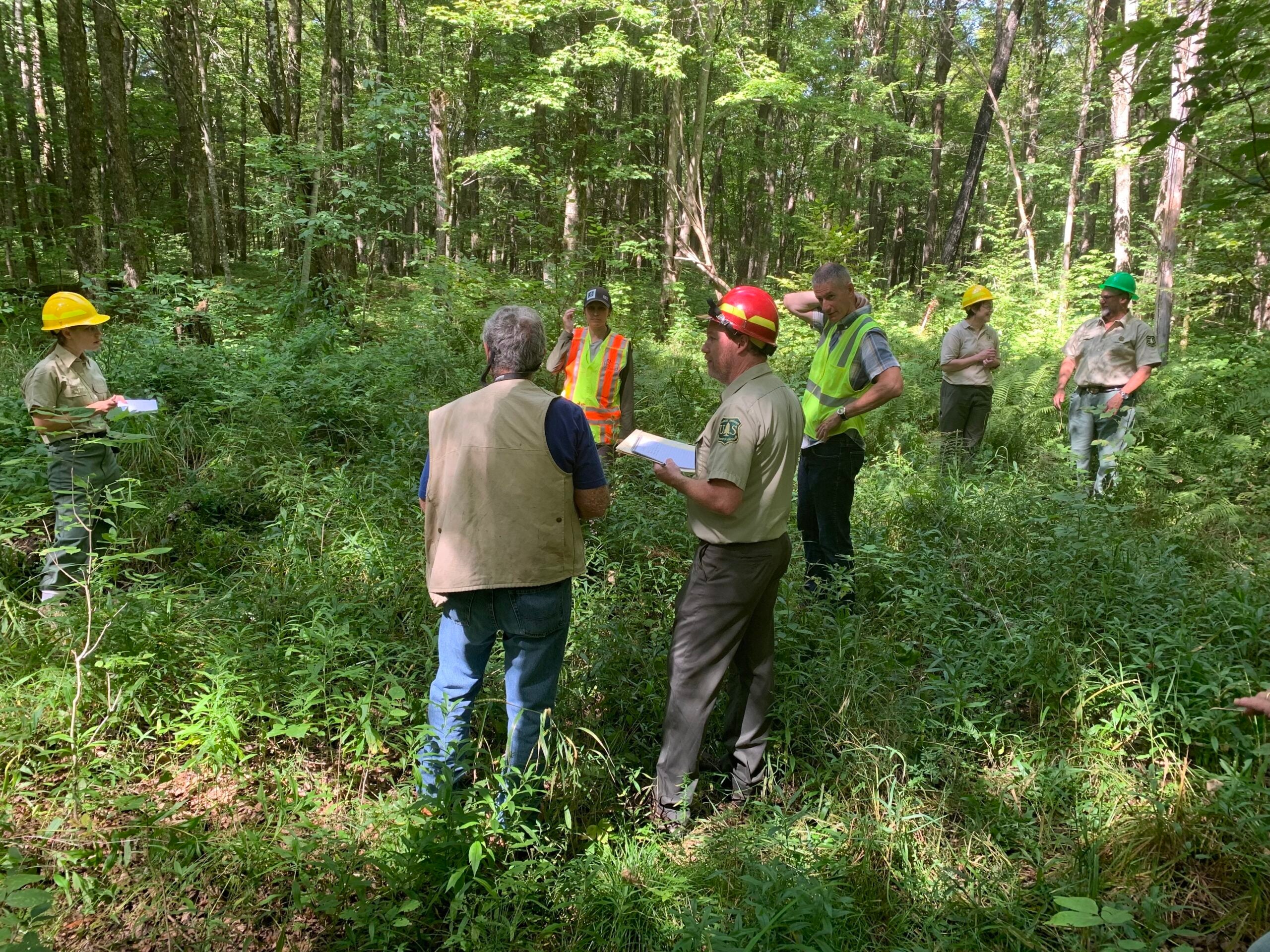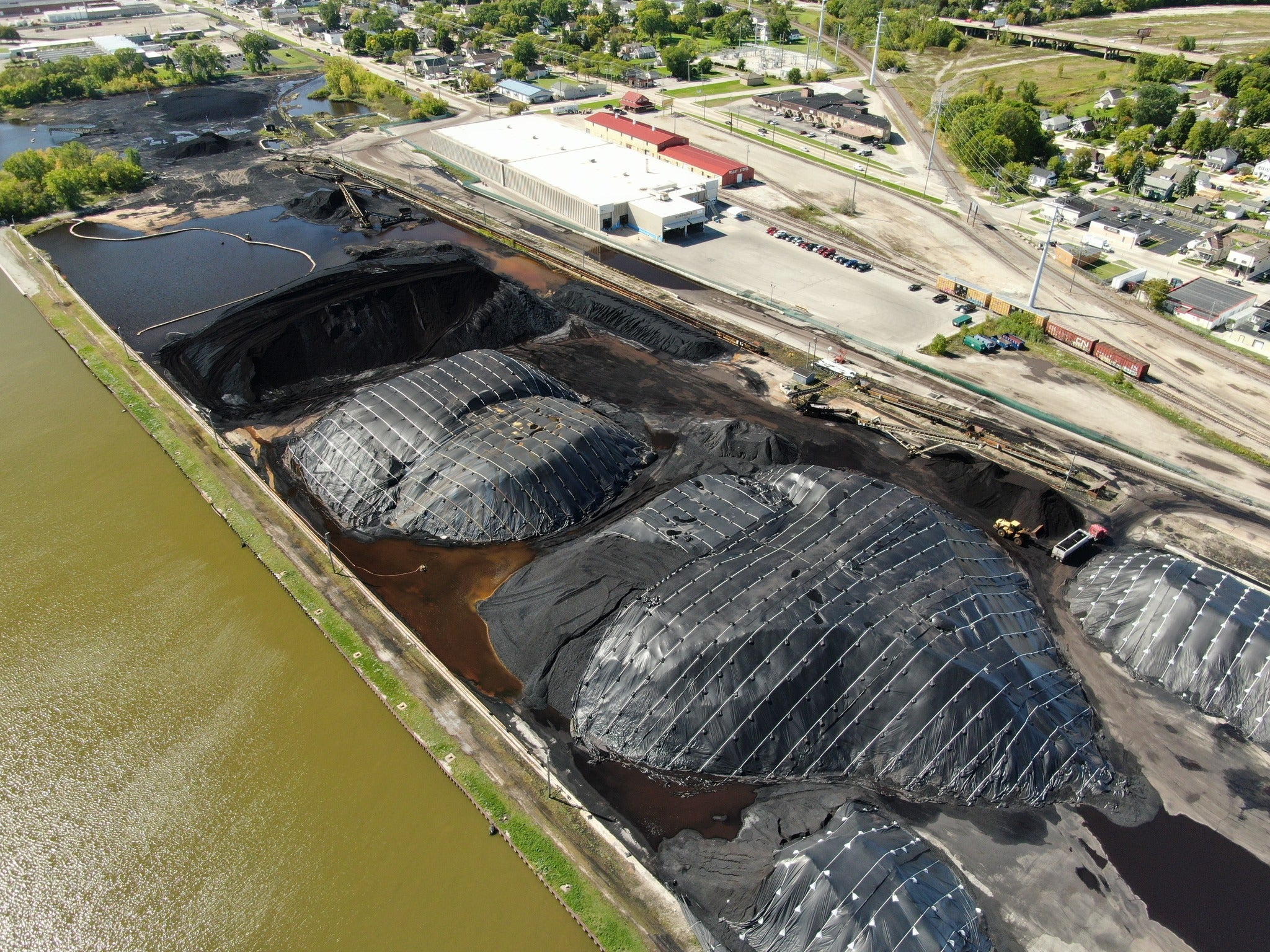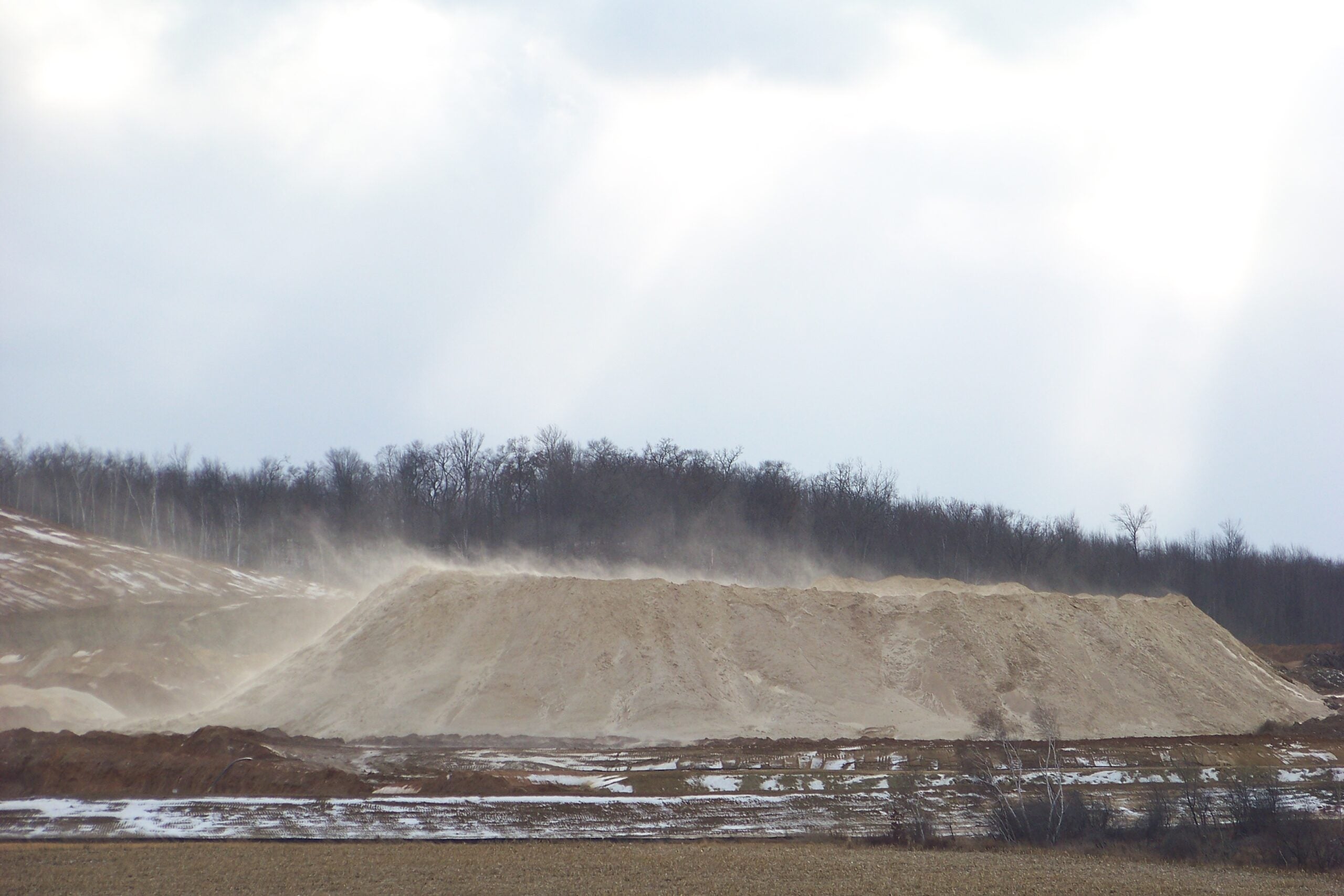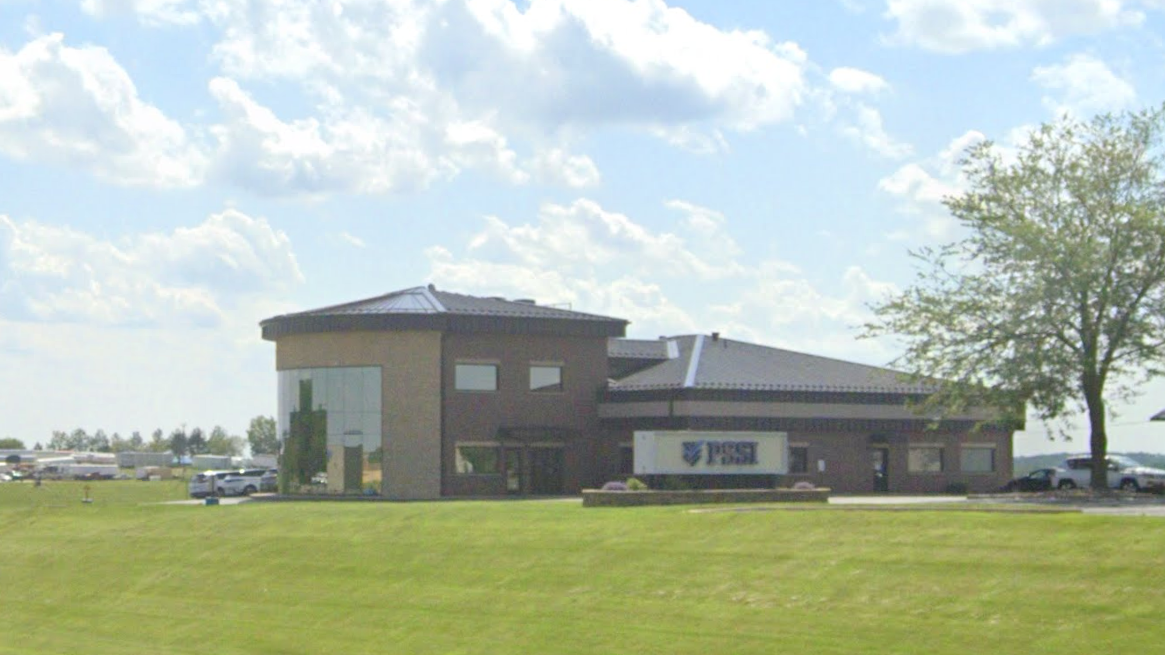A Canadian mining company is moving ahead with plans to drill for copper and gold in northern Wisconsin and may soon submit plans to drill for gold near Wausau. The development comes as some Wisconsin tribes and residents work to prevent mining and strengthen environmental protections.
GreenLight Metals, doing business as GreenLight Wisconsin, wants to conduct exploratory drilling of the Bend deposit at a 40-acre site owned by the U.S. Forest Service in Taylor County. The deposit is believed to contain 4 million tons of mostly copper and gold.
GreenLight submitted a notice of intent to drill detailing its plans and a wetland report to the Wisconsin Department of Natural Resources in late September. Documents submitted to the DNR state GreenLight hopes to begin drilling in November once the ground has frozen.
Stay informed on the latest news
Sign up for WPR’s email newsletter.
Dan Colton, president and CEO of GreenLight Metals, said in a statement that its filings with the state represent the first of many steps the company must take before drilling can begin.
“As our nation works to strengthen our national defense and develop critical infrastructure through domestically sourcing clean energy minerals, GreenLight looks forward to the role it may play in building a more sustainable, clean energy economy,” said Colton.
The company is proposing to drill at six new sites on private and federal land where GreenLight is leasing mineral rights from Soo Line Railroad, otherwise known as Canadian Pacific Railway. The company maintains only two wetlands and no waterways exist within the drilling area.
“GreenLight Wisconsin’s consultant went out and investigated the site and evaluated the existing site conditions and have indicated that the proposal will avoid any regulated wetlands that exist out in the field,” said Ben Callan, chief of the DNR’s integration services section.
Even so, GreenLight notes wood matting, which are used for short-term water crossings, may be required over a ditch containing a wetland to access the site. The company expects work to last about three months. Reclamation of the site would be completed within six months of the date the company no longer needs the drill holes. GreenLight estimates it will cost nearly $46,000 to abandon nine drill holes and restore the area.
The DNR is currently evaluating any permits or approvals that may be required and whether the agency needs more information from the company. State regulators have 30 days from receipt of the documents to approve or deny GreenLight’s plans.
Karl Welch, acting natural resources staff officer for the Chequamegon-Nicolet National Forest, said in a statement that GreenLight received approval from the forest to move ahead with drilling as outlined by the company.
“GreenLight will need to obtain all permits required by the Wisconsin Department of Natural Resources before starting their work,” Welch said.
Aquila Resources most recently conducted exploratory drilling of the Bend deposit in 2012, according to the DNR.
GreenLight also submitted plans to drill at the Reef deposit near Wausau, but those plans were withdrawn. Callan said the company is updating plans to do exploratory drilling of the Reef deposit before the agency begins its review. He expects them to submit revised plans soon, but no explicit timeline was given.
In August, the company detailed its plans to begin exploring the Reef deposit this winter. That deposit is roughly 12 miles east of Wausau in Marathon County near the Dells of the Eau Claire River. The deposit is believed to contain around 454,000 tons of gold reserves.
On Tuesday, Marathon County’s environmental resources committee debated a resolution calling on the state Legislature to repeal a 2017 law that lifted the state’s sulfide mining moratorium. Residents and tribes, including the Menominee Indian Tribe and Ho-Chunk Nation, have voiced concerns the company’s plans would lead to contamination of the region’s water resources. The Ho-Chunk Nation already passed a resolution in July, opposing the company’s project.
In 2017, the Republican-controlled state Legislature repealed a provision that required companies to prove other mines operated and then were closed for 10 years without causing environmental harm. The resolution before the committee asked lawmakers to pass new legislation that would strengthen environmental protections from sulfide exploration and mining, as well as expand local control.
“I really feel that it’ll bring back your much-needed local control,” said Nancy Stencil, a resident in the town of Red Mountain.
Marathon County Board Supervisor Jean Maszk, who brought the resolution forward, said the county needs more say over mining.
“We need to protect our water, and I don’t want to see a mining company coming in and pollute it if they do mine,” Maszk said.
Some members of the committee and county board voiced concern the resolution would contradict the county’s mining ordinance and said it lacked political support from lawmakers. Jacob Langenhahn, committee chair, said it would be better to address mining concerns with the state Legislature.
“I don’t see an avenue on where the county could have a potential sway in what happens in the Capitol. I just don’t,” Langenhahn said. “It’s politics. It is what it is.”
Marathon County Board Chair Kurt Gibbs pointed to the Flambeau mine as an example of sulfide mining that can be done responsibly.
Environmentalists disagreed and filed a lawsuit against Flambeau Mining Company. In 2012, the Milwaukee Journal Sentinel reported a federal judge ruled the company violated federal clean water laws, but also concluded that pollution was minimal.
The committee didn’t vote on the resolution. Metals like gold and copper, which are found in sulfide ore bodies, haven’t been mined in the state since the Flambeau mine shut down in 1997.
Wisconsin Public Radio, © Copyright 2025, Board of Regents of the University of Wisconsin System and Wisconsin Educational Communications Board.
